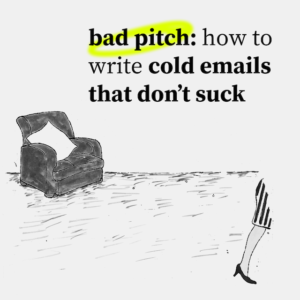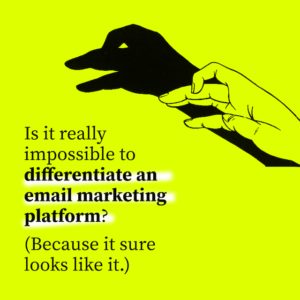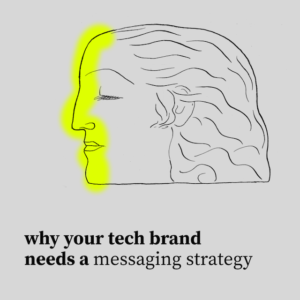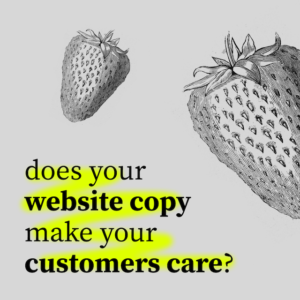

[Inspired by articles like “How to achieve authenticity in marketing” and a lot of other stuff.]
You know the drill. Someone comes up with something in marketing. And it works. Brands pick it up. Next thing you know, everyone does it.
Everyone uses it in their headlines, their about us pages, their blog posts.
Even if they don’t mean it. Or maybe, especially if they don’t mean it. Because that word is now just another meaningless buzzword. Another pretend clever punchline.
It’s the same every time. And we’re used to it. We just move on to another word.
But how in the world has this happened to words like “authenticity”?
Or “transparency”?
I’m baffled.
Authentic is *the* opposite of fake. The exact opposite of phony.
And now it’s become its own antonym.
It’s like some people didn’t get the memo. And started wondering how to make their brands *look* authentic, slapping “authenticity” on top of their usual BS. Hoping it’ll just make it, you know, authentic. As in “real” and “genuine”.
As in “true”.
And bam, another word that’s ruined for us, thank you very much.
Now, where did this come from?
Marketing’s never had a very good reputation. And it’s earned it for decades.
I know a lot of people who don’t want to be called copywriters or marketers. Who feel embarrassed at the very thought of being associated with marketing. Like it’s a dirty word.
Because they think of it as tricking people into doing stuff: pressing that button, buying that add-on, getting charged for the next 12 months of subscription without getting notified.
Selling stuff people don’t need, making them think they do.
Being inauthentic (another word for lying.)
(One of the most poignant sentences I’ve read on the internet in the last weeks said the economy’s about to collapse because people are now only buying what they need. And it felt so on point.
But, let’s not get too philosophical about this now.)
I’ve always felt it’s not right. Marketing is not about typing random keyword-stuffed sh*t on your website.
Not about writing tips on remote work if you’ve never worked a day remotely in your life.
Not about telling people how they should run their businesses if the only knowledge about running your own business you have comes from playing Monopoly.
It can’t be. Right? (I’m an idealist, I know.)
Not good marketing, anyway. Definitely not great marketing.
So what is good marketing?
I have a feeling you might already know what I’m on to here.
Because, what if it is authentic?
What if it tells you the truth about your product and service (and is particularly good at it.) Showing you ways the product or service can be helpful. Yeah, what if it is helpful?
Just a thought.
Think about it.
Hint: you don’t have to spell it out. Maybe just try being it.
I’ve come to think writing marketing copy is like having a conversation with your customer. That’s what I tell people at the start of every copywriting workshop I run.
You’re talking to a real person reading. You’re taking up their time (if they decide to pay attention.) Please don’t make it feel like you have nothing to say.
Or, I mean, go ahead and do it. But don’t expect a response.
(And if you have a response to anything you’ve just read, leave it in a comment. If you want.)
Got time to read more?
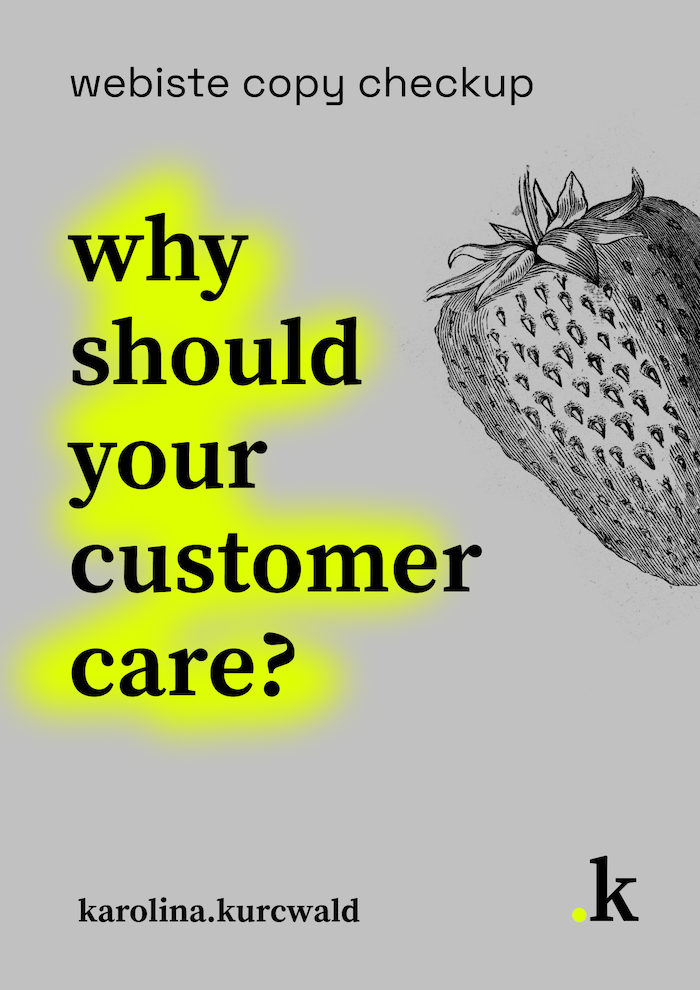
Download my website copy checkup and see if the copy on your website talks about what really matters to your customers.
see if they care →
